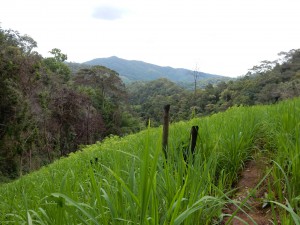The impacts of biodiversity loss and climate change exacerbate the drivers of conflict or existing sources of tension in society. Associated policy decisions and interventions can also have unintended consequences that increase conflict risks, especially when they are poorly planned and implemented. To effectively plan policies and interventions, all actors should not only strive to understand not the factors of the system, their dynamic relationships and how they change over time, but also the impacts of a policy decision or intervention on that system. SwedBio has developed a Conflict Policy that helps guide our work.
SwedBio’s engagement in policy processes, as well as catalysing locally-driven initiatives with partners, has created opportunities for conflict resolution. Our approaches and methods, such as the Multiple Evidence Base (MEB) approach, Dialogue Seminars and Community-Based Monitoring and Information Systems, ensure participatory and collaborative processes for learning as well as joint problem-solving across multiple levels. They are highly instrumental in addressing conflicts over natural resources in a peaceful manner while paving ways towards transformative changes in the intersection of biodiversity, climate and conflict.
Our adaptive approach to seize synergies and embrace complexity has always been well-aligned with the principles of a conflict-sensitive approach. For the program period 2021-2024 we have committed to making the integration of the conflict perspective into our works more explicit. SwedBio has developed a policy to guide this work. Particularly, in the development and implementation of policies and methods which positively contribute to “sustainably managed world and equitable development in harmony with nature”.
To date, SwedBio has integrated conflict perspective into the design of the Theory of Change and the Monitoring Evaluation and Learning framework for the coming phase. Such a work will be followed by gradual integration of a conflict perspective into our management processes (including the Routines and Procedures) and operational practices, as well as Risk Analysis. We also commit to promote a conflict-sensitive approach and encourage our partners to support their national and local partners to base their project implementation on the principles of a conflict perspective.

 SwedBio's Conflict Policy
SwedBio's Conflict Policy